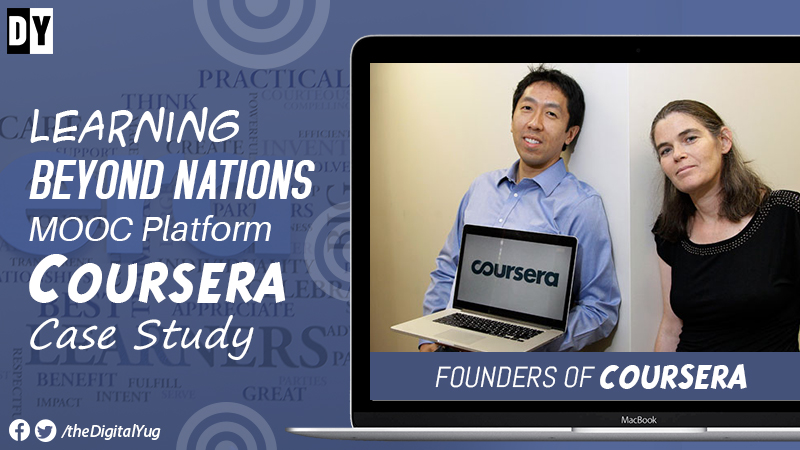
The pandemic, for a lot of us, has been a long stretch of attempting to get things done from home. One such task is learning. It is with the COVID pandemic that online learning sites (like Coursera) saw a massive influx of learners, and demands for it increased in leaps and bounds. But Coursera's success isn't just owed to the pandemic, but it has been one of the most sought after online learning platforms for a while.
Let's break down this journey and take a look at all the successes and influences of Coursera.
The platform was started by former Stanford University computer science professors Andrew Ng and Daphne Koller in 2012. Coursera has evolved a lot & despite its struggles to become profitable, they have had a huge influence on the learning culture of the present generation.
 Andrew Ng and Daphne Koller - Founders Coursera
Andrew Ng and Daphne Koller - Founders Coursera
Coursera is an online education platform that provides online courses, also known as Massive Open Online Courses (MOOCs). Coursera claims that people from any part of the world can access these courses.
How it Works: It is pretty simple to sign up for Coursera using your email ID. And once that is done, all Coursera's catalogue is at your disposal, consisting of over 6000+ courses.
Once enrolled, classes are conducted through pre-recorded video lectures. And the students can be evaluated through quizzes, peer-graded, and review assignments. Depending upon the courses, one might also need to complete an honors assignment and sometimes a final project or exam. On finishing the course, the students are awarded a certificate.
There are six different broad categories of courses provided by Coursera.
These are a few hours long and start at around $9.99. There are also called guided projects or guided tutorials, where students are provided with meticulous tools (through video instruction) to master a project in the span of the course.
Few examples of these kinds of courses currently provided by Coursera are
These courses are slightly longer in duration, starting free of cost. These are great way to get the feel of online learning. There are some courses in this module where you have to pay for the sharable certificate.
Some Examples:
These courses are a few months long, usually 1-3 months. They can cost you $39 and upwards per month and allows you to choose different specializations. But before investing in these courses, you can access them for a week for free, which is a great way to gauge if the course is worth your money or not.
Some Examples:
In this module, you can earn professional certificates but demands to commit for 1-6 months. Like the previous module, this one, too, starts at $39.
Some Examples:
Through these courses, you have the opportunity to get credits towards a degree. The MasterTrack® courses will ensure that you have access to "a university-issued online graduate certificate, consisting made up of a thoughtfully selected portion of a top Master's degree programs from top universities." These courses are 4-7 months long, and the starting price for them is $2000.
Some Examples:
Now, these courses are full-fledged degrees and demand years of commitment like regular degrees. Starting from $9000, these can be steep depending on the region you are living in.
Some examples:
| Advantages | Disadvantages |
| Accessibility, one can access them from any place, without any time constraint. | Slightly difficult to access without prior computer knowledge or compatible technology. |
| Can be cost-efficient, depending upon your goals | Similarly, can be completely out of budget depending upon the region |
| No need to travel to a campus | No in-person experience. |
| Degree courses are great for busy working people. | Might be tedious for regular college students |
Coursera was launched in 2012. As a young startup, they raised initial funding of $16 million backed by Kleiner Perkins Caufield & Byers and New Enterprise Associates. So far, these are their achievement milestones:
In many ways, the MOOC market is still developing, attracting many skeptics and supporters alike. Coursera, despite the upcoming and existing competition, manages to stand out in this young market due to its innovation and adaptability. But the trend of loss seen so far from the company speaks of an inefficacy when it comes to operations. Will Coursera be able to overcome it or eventually succumb to it and fizzle out?
Latest Updates from around the world
Most read stories, topics, and videos
Latest Updates from around the world